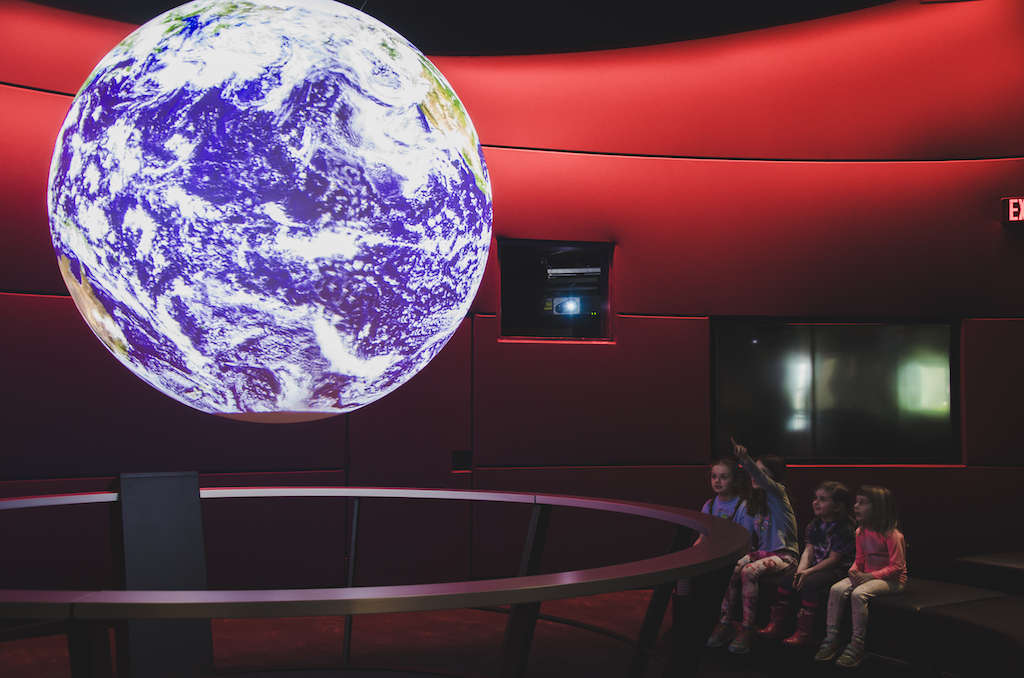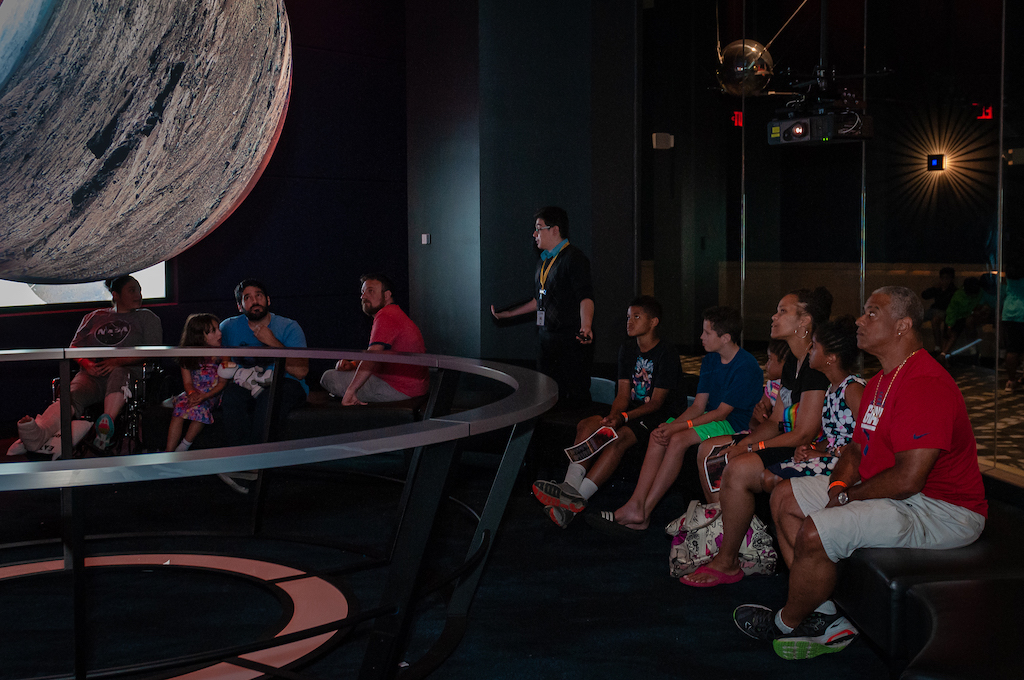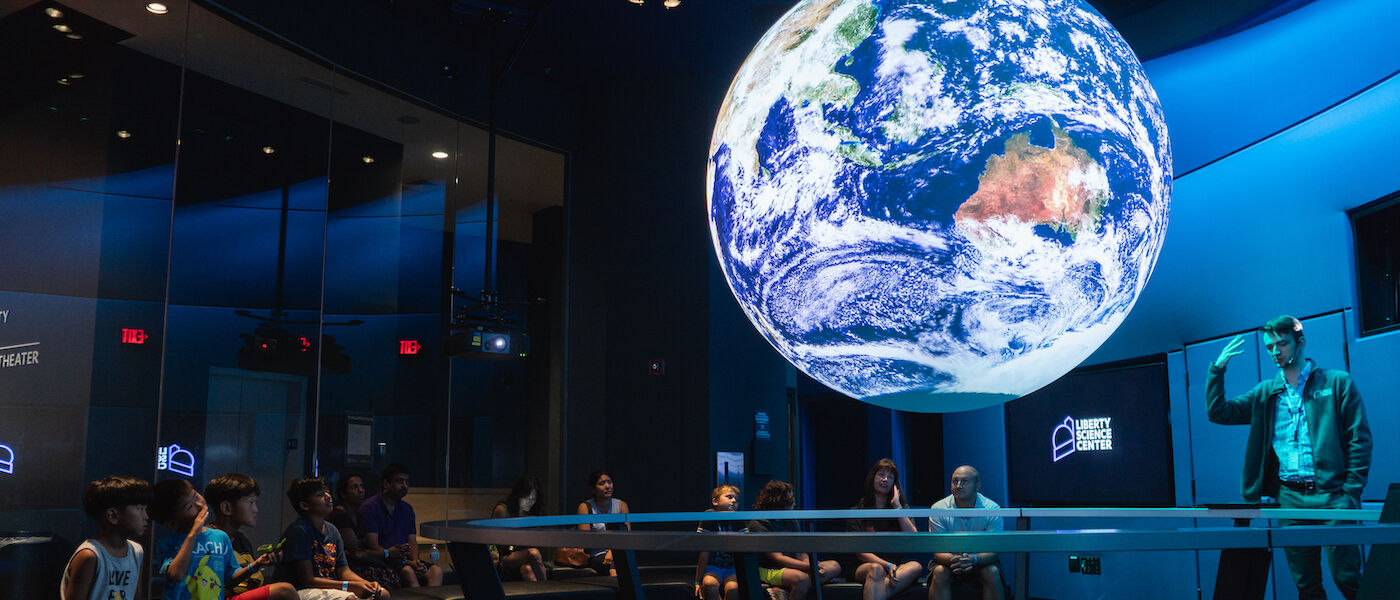As New Jersey integrates climate change education, Liberty Science Center is here to help
In June 2020, New Jersey became the first state to fully integrate climate education into its K-12 learning standards. The goal is for students to learn how and why climate change happens, its impact on local and global communities, and how to act in informed and sustainable ways.
And with these changes to the New Jersey Student Learning Standards, Liberty Science Center is here to help – especially for something as critical as climate change education, says Ivory Williams, LSC’s Vice President of STEM Education.

“For New Jersey to retain its position as a leader in education and clean energy and to achieve its goal of being 100 percent clean by 2050, our students must learn about the science of climate change,” Williams says. “New Jersey students must be prepared to be the future scientists, policymakers, and educators who will continue to create and implement solutions to mitigate climate change.
“In addition, whether it's enduring another blazing hot summer, hunkering down during another super storm, or witnessing disappearing shorelines, our students have first-hand experience of the effects of climate change. It’s personal. They have a vested interest in making their world – current and future – a better, healthier, more sustainable place.”

LSC’s STEM educators present a diverse range of climate change programming – virtually, at schools, and at the Science Center – for students in grades pre-K through high school, as well professional development courses for teachers.
These programs are supported by LSC’s Science on a Sphere (SOS), a six-foot suspended globe which tracks real-time conditions anywhere on Earth’s surface with HD images uploaded directly from NOAA and NASA. Images of tectonic plate motion, melting sea ice, volcanoes, and hurricane paths can be viewed in real time by students and educators.
“SOS is the ultimate visualization tool for presenting evidence of climate change through ocean, weather, and climate data sets that are fully immersive, scientifically accurate, and include historical and real-time information,” says Williams.

“It provides opportunities for students and educators to take a data-driven deep dive into the science of climate change and promotes discourse on how to mitigate it through sustainability and resiliency efforts.”
Williams hopes that this technology – along with the committed work of LSC’s STEM educators – will create a new generation working toward solutions and that is more mindful than ever of their impact on the ecosystem.
“I hope students and educators take away a better conceptual understanding of how and why climate change happens and its impact locally and globally,” says Williams. “I also want them to take away that their voices are needed to amplify the climate change conversation and that their choices to act in more informed and sustainable ways, individually and collectively, will make a difference.”
Educators can learn more about LSC’s climate change programming and reserve a course by clicking here.
